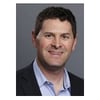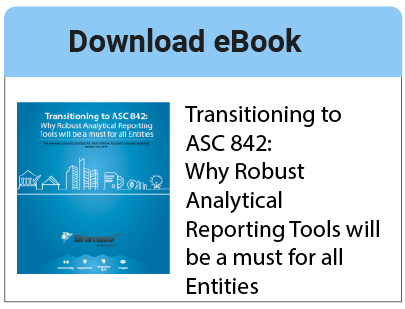Driven by sweeping changes such as digital transformation, globalization of markets, the subscription-based Digital Solutions Economy™ (DSE), carbon-accounting mandates, a rising emphasis on artificial intelligence, and other disruptive trends, the role of Chief Financial Officer (CFO) is undergoing radical transformation too.
This blog post provides an overview of these major waves of change based Bramasol's more than 27 years of working closely with CFOs and their stakeholders across many industry segments and technology innovation cycles.

The Big Picture View
CFOs are increasingly seen as strategic partners to the CEO and the board of directors. They are expected to provide financial leadership and insight into the organization's strategic direction. This involves not just managing financial data but also interpreting it to guide decision-making.
A recent study by market analysis firm IDC and payments provider Billtrust, indicated that 90 percent of executives surveyed in the US and EMEA said the CFO's importance to the organization has increased.
Digital Transformation
Digital transformation involves integrating digital technologies and solutions into every area of a business. This is as much a cultural change as a technological one as it requires organizations to make fundamental shifts in the ways they operate and how they deliver customer experiences and benefits. Digital solutions also help to augment the workforce and can lead to business process and business model transformation.
This is not only one of the most important issues for virtually all companies; it is also a primary driver behind the expanding role of the CFO. According to a PwC 2022 Global Digital CFO Survey, 73% of CFOs agree that digitalization of the finance function is a high priority and already 18.5% of the CFO’s time is devoted to digitalization.
With so much of the push toward digital transformation targeted at improving productivity, lowering costs, implementing enterprise-wide analytics, and enhancing profitability, it is no surprise that CFOs would also tend to lead the way across the full spectrum of digitalization processes.
According to a 2023 Gartner Survey of the Top 10 Priorities of CFOs, 83% of CFOs are significantly involved or leading transformation activities.
Globalization
CFOs have long needed to assure compliance with two different standards-setting bodies. The first is the Financial Accounting Standards Board (FASB) in the United States. The other is the International Accounting Standards Board (IASB), whose rules for financial reporting are known as International Financial Reporting Standards (IFRS).
Although there has been a mutual effort between FASB and IASB since 2008 to harmonize many of the compliance and reporting requirements, there are still differences that need to be taken into account by companies doing business globally. For example, while revenue recognition standards ASC 606 (FASB) and IFRS 15 (IASB) share many basic concepts, including the Five Step Model, there are key differences in the accounting and reporting details.
In addition, other key regulatory areas also have different mandates and standards, such as privacy protection under European General Data Protection Regulation (GDPR) vs US privacy regulations; or climate change reporting under European Sustainability Reporting Standards vs US climate related financial reporting standards. (More details on climate issues below.)
With compliance and reporting requirements squarely within every CFO's wheelhouse, it is critical for the Office of the CFO to stay closely involved in this whole spectrum of new and continually changing requirements at the regional, country, and local levels.
The Digital Solutions Economy
As more companies move to take advantage of the predictable recurring revenues and customer loyalty enhancements provided by DSE business models, it has become clear that a holistic approach is the only way to deliver front-end customer-facing flexibility combined with back-end scalability, profitability and compliance.
Financial leaders must be more strategic by having the ability to look holistically at end-to-end, quote-to-cash (QTC) data and trends that impact key performance indicators. CFOs need to be at the forefront of evaluating technologies and defining enterprise-wide approaches to assure both the front-end and back-end systems mesh together to achieve customer satisfaction, revenue optimization, profitable growth and compliance with RevRec requirements.
Bramasol was already working closely with SAP on revenue recognition compliance solutions even before the 2014 launch of SAP Revenue Accounting and Reporting (RAR) and we've been involved with more RevRec implementations than any other SAP partner over the past ten years. Along the way, Bramasol has developed a range of intellectual property (IP), best practices, and tips for optimizing RAR.
In recent years, Bramasol has also helped lead the way on deploying various aspects of the SAP Quote-to-Cash applications portfolio (formerly known as BRIM) to help clients across many industries implement subscription-based DSE offerings. Use cases have included subscription billing, entitlements, bundling, usage-based, and other recurring revenue models.
As leaders in both SAP RAR and SAP QTC implementation, Bramasol has also helped CFOs and their staff enhance the productivity of DSE programs by seamlessly integrating RAR-based revenue compliance into QTC enabled product and service offerings.
Carbon Accounting and ESG Mandates
In addition to the mandates cited above under globalization, one of the major ESG compliance developments to watch is the US Securities and Exchange Commission (SEC) proposed regulation on Climate-Related Disclosures and ESG Investing. With a focus on assuring that companies' ESG disclosures provide accurate information, the SEC has also established an Enforcement Task Force to "to identify potential violations including material gaps or misstatements in issuers’ disclosure of climate risks".
From a global perspective, the International Sustainability Standards Board (ISSB), which was established by the IFRS in November 2021 at COP26 in Glasgow, has issued its first two standards. IFRS S1 requires companies to communicate the sustainability risks and opportunities they face over the short, medium, and long term. IFRS S2 sets out specific climate-related disclosures and is designed to be used with IFRS S1.
As part of SAP's green ledger initiative, the Sustainability Data Exchange application allows companies to request and exchange carbon data across supply chains, including sharing of actual Scope 3 product carbon footprints. The solution utilizes carbon data interoperability standards established by the Partnership for Carbon Transparency (PACT), which allows different emissions and accounting technology solutions to connect and share information. After full release in Q3 2023, SAP will regularly update the emissions calculation engine and Sustainability Data Exchange the same way that it offers updates to tax calculations.
CFOs need to be tracking all of the above mandates as well as the end-to-end carbon-accounting and ESG management solutions that are emerging to support compliance.
The Rise of Generative AI
Much of the focus over the past year has been on the dramatic rise of generative AI (Gen AI) applications, even though other forms of AI such as machine learning have already been in use throughout the earlier evolution of many business systems. Here again, corporate CFOs find themselves deep in the mix of stakeholders tasked with integrating Gen AI into overall business processes.
Just last week, SAP announced Joule, a natural-language, generative AI copilot that will transform the way business runs. Joule will be embedded throughout SAP’s cloud enterprise portfolio, delivering proactive and contextualized insights from across the breadth and depth of SAP solutions and third-party sources. By quickly sorting through and contextualizing data from multiple systems to surface smarter insights, Joule helps people get work done faster and drive better business outcomes in a secure, compliant way.
According to Christian Klein, CEO and member of the Executive Board of SAP SE. “Joule draws on SAP’s unique position at the nexus of business and technology and builds on our relevant, reliable, responsible approach to Business AI. Joule will know what you mean, not just what you say.”
Summary
It is not an understatement to say that the role of corporate CFOs will continue to be radically transformed by the issues described above as well as other significant disruptive trends that aren't even on the radar yet.
For the most part, perceptive CFOs have already embraced the shift from primarily a backward-looking role that focused on reporting what happened to a strategic forward-looking role that leverages technology for real-time and predictive insights to help visualize and create the future.
For More Information:
- Webinar: IP and Unique Solutions from Real-world RevRec Projects
- Video: BRIM Quote-to-Cash Overview
- Webinar video: Managing Entitlements in the Digital Solutions Economy
- Webinar video: Power Transition to DSE with SAP Cash and Treasury Management
- Webinar video: Automating Revenue Management for the Digital Solutions Economy
- eBook: Using DSE to Create Integrated, Scalable & Sustainable Business Models

.png?width=3121&name=MicrosoftTeams-image%20(33).png)


